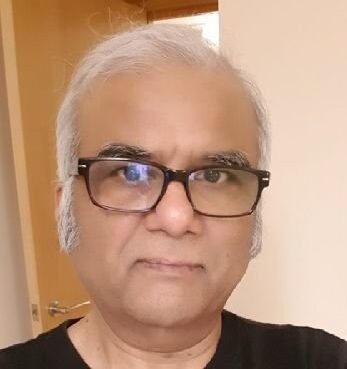Khalid Umar, a practicing Barrister in the UK, is originally from Pakistan. He is very active on Facebook, where he frequently shares his insights on Indic matters with his nearly 20,000 followers. This article is based on a small part (6:02 – 12:45 min segment) of his wide-ranging interview with Citti.Net, titled “Hinduism is intellectually superior.”
Interviewer’s question (paraphrased)
Hindus have always gone out of their way to support the rights of our Muslim brothers and sisters. One wonders why, then, Hindus are not given the same respect in return. And how do we correct this fundamental disrespect and lack of mutuality?
Khalid Umar’s response

“Apparently, it feels good calling Muslims as brothers and sisters. And ideally, it should be (so) in any educated and secular society. The problem is you can’t clap with one hand. For a Hindu to call a Muslim brother, the same sentiment must be reciprocated as well.”
“But the problem happens when Muslims take their religious teachings of the 14th century (as) literally applicable today.” For a practicing Muslim, Umar explains: “…a Hindu is not only a Kaffir, but a Mushrik [idolator] as well, which, according to their interpretation of Islam, is an unpardonable sin.”
“With the polytheists, a Muslim is not allowed to have any social relationships like marrying, socializing, eating food together, etc. So, the way Islam is being interpreted, it cannot be secular. And that’s why you, as a Hindu, will never get the same respect in return.”
So, the way Islam is being interpreted, it cannot be secular. And that’s why you, as a Hindu, will never get the same respect in return
To the question of how the situation can be rectified, Umar says: “I believe it can only come by stopping radicalization. It is the home where it all starts, then madrasa and school.” He believes, “One country, one curriculum is the recipe of communal harmony and peace in India.” He repeats for emphasis: “India needs a uniform education code – one secular curriculum for all.”
Khalid Umar notes that there are 3000 madrasas in the Indian Capital, New Delhi alone, with over 360,000 young minds stuck in the curriculum which was developed in the 1700s. One cannot dream of taking the nation forward with millions of children enrolled in over 600,000 madrasas around the country. In addition, there are 4-5 million mosques as well, with attached elementary schools and madrasas.
The Indian government has tried but has failed to make madrasa education more inclusive of secular and science subjects, Umar points out. There was a scheme called SPQM, introduced around 2009-10, to include science, math, social studies, Hindi, and English in madrasas. It is still going on in 18 states in the country, and so far, over 21,000 madrasas have been given huge funds – over Rs1000 crores (approx. $125 million) to implement the secularization scheme. However, he says, “You can’t teach science and mathematics and algebra, etc., [along] with Islamic scripture, because the core Islamic scripture, as being taught in madrasas, cannot be made secular and humanistic.”
He then asks, rhetorically: “…will the students of the madrasas trust science, which says that the earth is spherical and revolves around the Sun? Or, would they believe the interpretation of Quran, which says that Earth is flat and the sun sets in the murky waters of the lake? How can you teach them harmony and love, when they will learn from Quran that all the idol worshippers are consigned to the eternal hellfire?”
If we cannot control mullah, mosque and madrasa, then peace and communal harmony will remain in pipe dream for the Indian society.
“If we cannot control mullah, mosque, and madrasa, then peace and communal harmony will remain in pipe dream for the Indian society,” he concludes, “You know, you have to control the avenues of indoctrination before you can think that, in 20 to 30 years, things will come to normal settings.”
Khalid Umar – Brief Biography
Growing up In the late 1970s in the Punjab province of Pakistan, Khalid Umar recalls that his school education emphasized the supremacy of the Islamic faith over all else, often portraying Hindus as wicked, constant enemies of Islam and their religion as promoting bad values. Muslims were described as historically tolerant, having ruled the Indian subcontinent for a millennium without forcibly converting Hindus.
After General Zia-ul-Haq’s rise to power in the late 1970s, the educational system became increasingly Islamist. According to Umar, even today, many Pakistanis perceive Hindus as being connected to those who lived in Mecca during the time of Prophet Muhammad, adding religious weight to the animosity against them. This narrative contributes to a sense of holy war, pitting the “kafirs” (non-believers) against Islam.
Umar had the good fortune of being born to educated parents who held a more inclusive view and shielded them from religious indoctrination. This helped him to become a free thinker, unburdened by the prevalent biases and animosities in many Muslim households.






